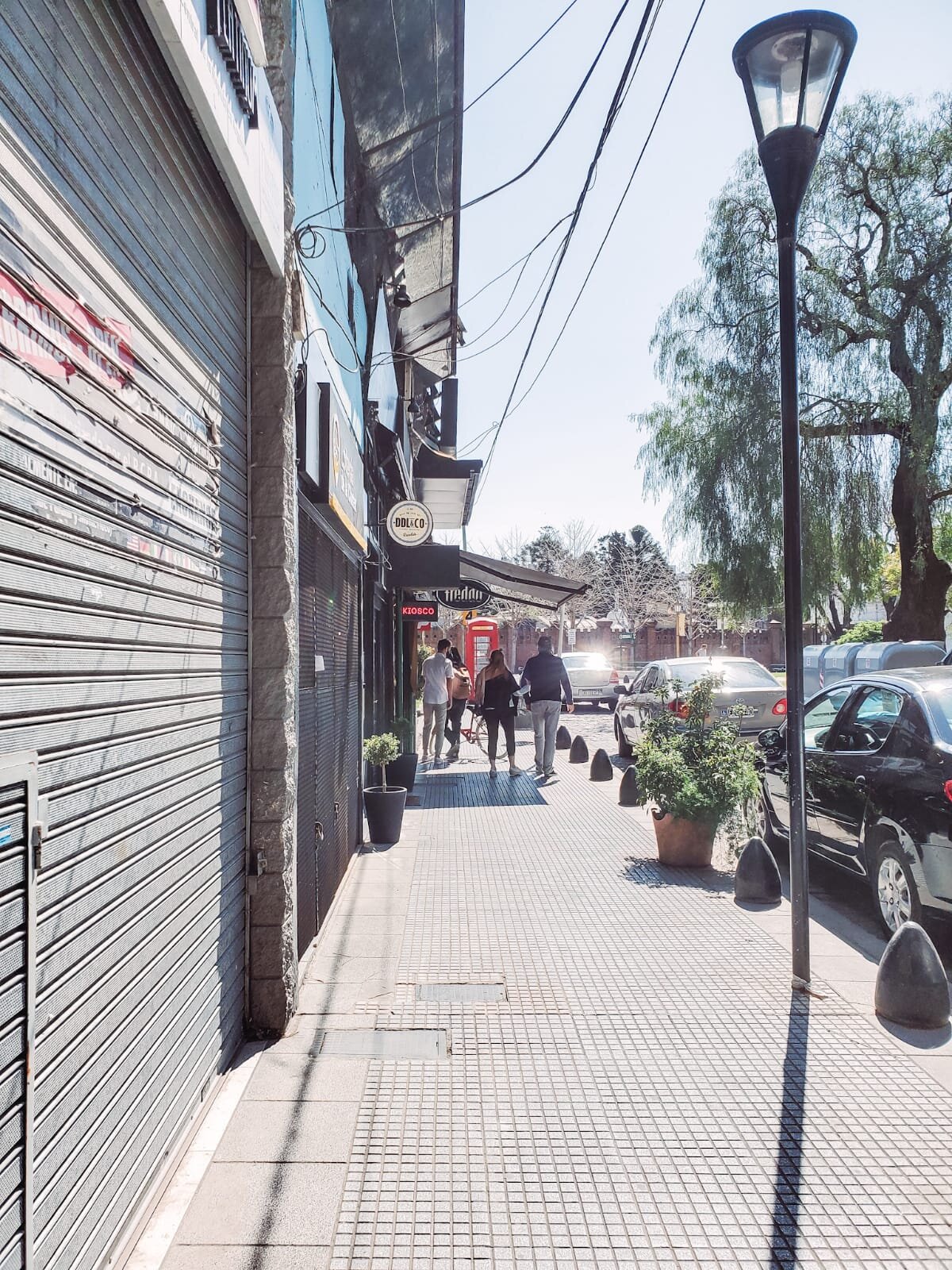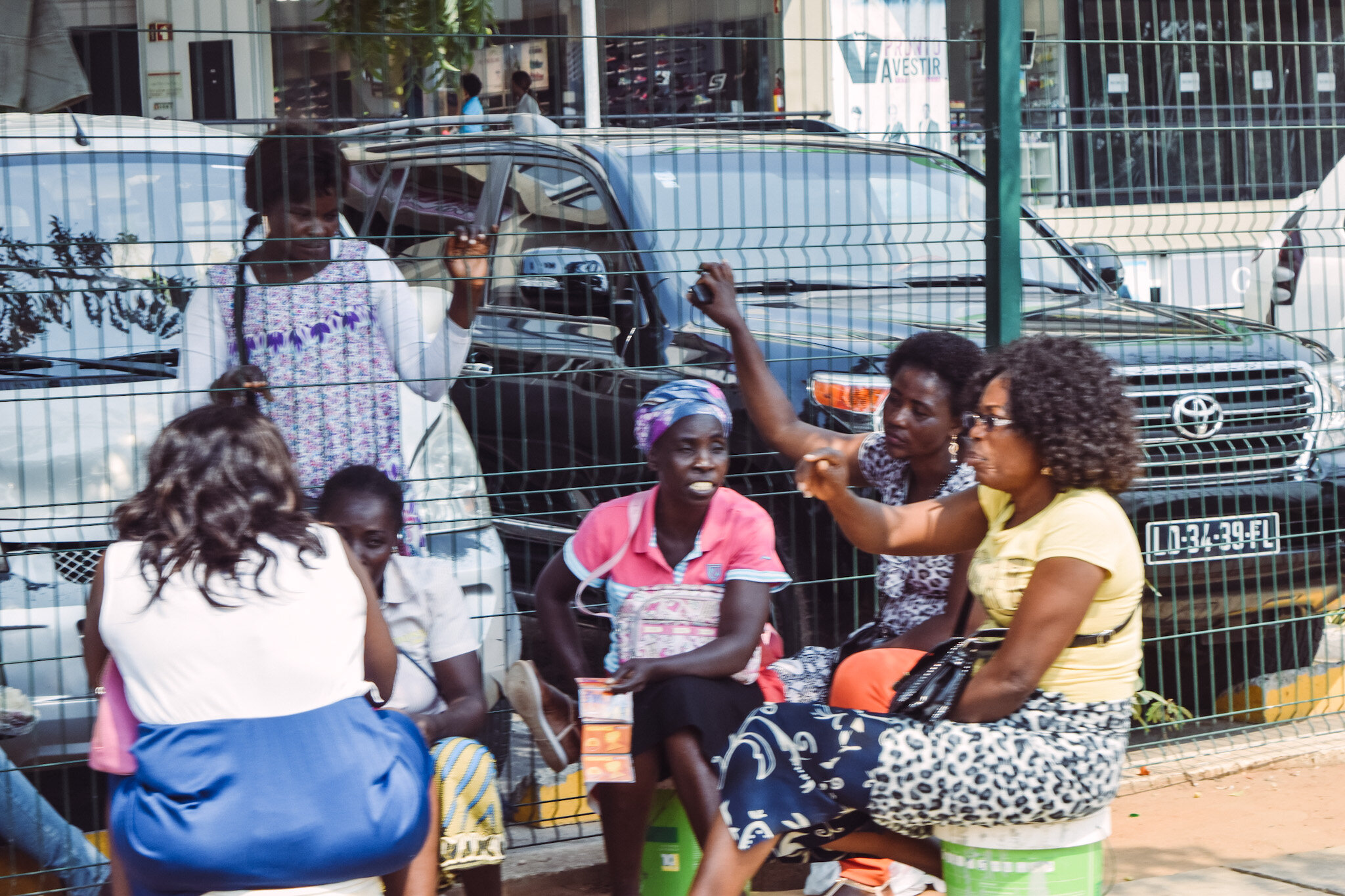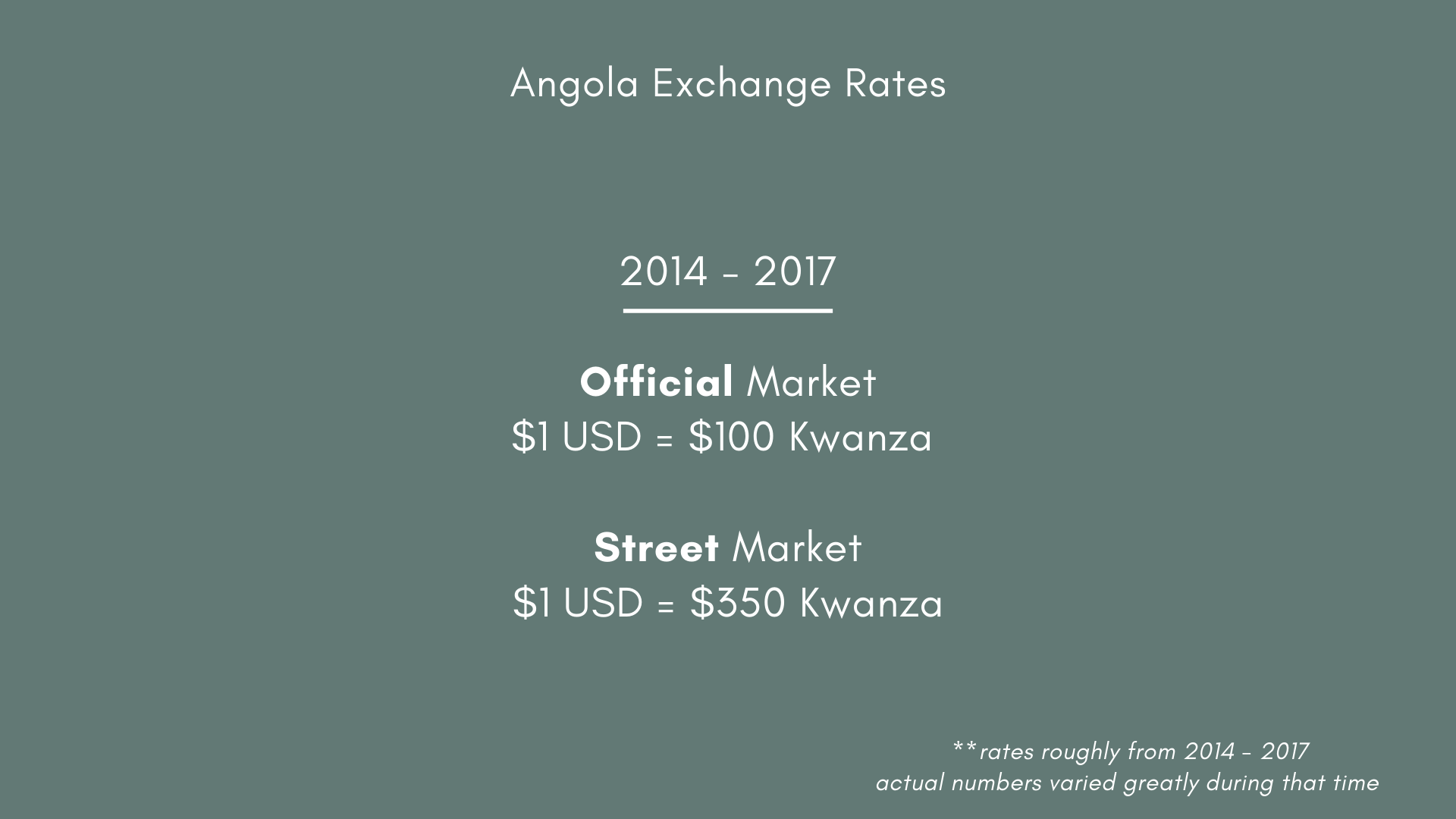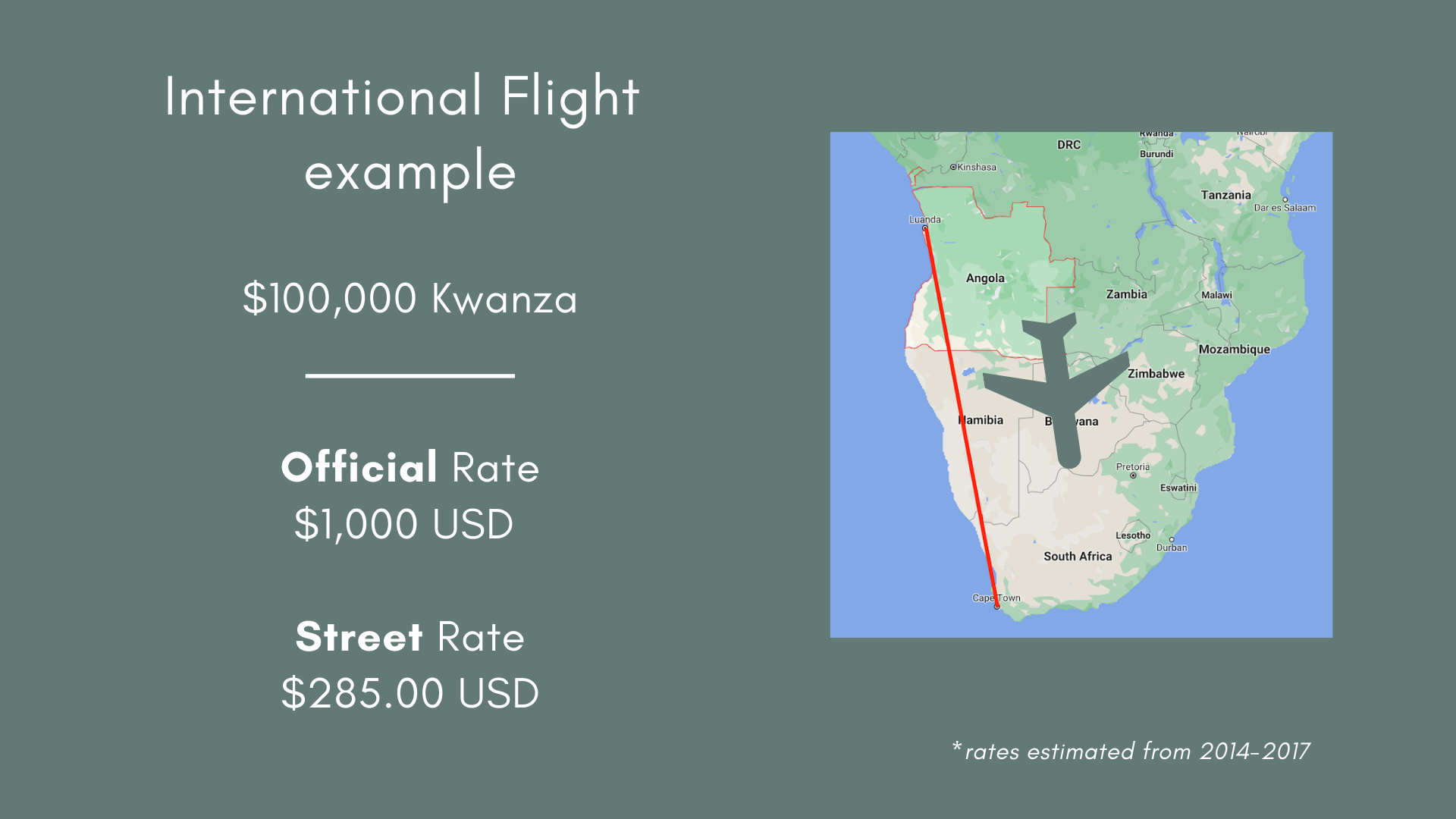Exchanging Money While Living Abroad
Black Market Street Rate vs. Official Exchange Rate Explained - Argentina & Angola edition
*Disclaimer - This article uses USD as we are Americans living overseas. Euros, Pounds and other strong foriegn currencies are also typically accepted for exchange on the street markets. Also, this is an article on our personal experience exchanging money while living overseas. Exchanging money on the black/street market can be considered illegal or unsafe and therefore is not recommended.
Are you thinking about moving overseas but not sure about how the money exchange markets work? How to exchange money or where to do it? Or how it can benefit you? Well, today we are going to share with you inside information on how the informal exchange markets work after living in two different countries for 6 years.
We created a YouTube video about this same topic!
Click here to watch instead! —>
Planning to move to Angola or Argentina? Check out these activity lists I made for each location. This one is over 30 things you have to do in Luanda and this one is over 50 things you have to do in Buenos Aires!
On one of our previous blog posts we got a question about the informal exchange market, the “blue dollar” here in Argentina and we thought it would be a good opportunity to explain how - when you are living overseas, some countries have an informal or black market for exchanging currency.
First, what are the differences in exchange rates?
What do we mean when we say the “official exchange rate”?
This is probably what you’re already familiar with. When you go on vacation and you need to exchange money. You will go to your hotel’s front desk, a bank or exchange booth in the airport and they provide you local currency in exchange for your dollars. They will use the official exchange rate. This is also published online and updated daily. And the official exchange rate is recognized by the government.
What is a Black or Street Market Exchange Rate?
You won’t get this rate when you’re exchanging money for your two week vacation.
This exchange rate is not typically recognized by the government. And it is not available in legitimate exchange locations.
Basically you have to find people to exchange with “on the street”. And it can mean literally on the street. Or you can use connections to find people that will exchange with you privately.
Side note - there are a lot of terms used to describe the black market. All these terms can be used interchangeably and basically mean the same thing:
Black Market - Street Market - Unofficial Exchange Rate - Informal Market
Let’s talk about Argentina first.
Argentina
When we arrived here in Argentina in early 2018 the official exchange rate and the street value were about the same. You could get the same amount of pesos if you walked into a bank or exchanged with someone on the street.
But in the past 2 years the difference between the official rate and the street rate (here they call it the blue rate) has been increasing dramatically.
Here are some numbers:
Note - as of late October the Blue Dollar has reached 175
Logistics of Exchanging on the Street Market
There’s a infamous street here named Florida and this is where the majority of black market exchanges happen. So there, you need cash to exchange for Argentine pesos.
But you have to be careful not to receive counterfeit bills. There have been many stories of people receiving counterfeit bills, especially tourists that don’t know what to look for on real bills.
Another option, which is safer, is to network to find those willing to buy USD from you privately. You can wire money between your bank accounts. Or choose a safe location to meet to exchange money.
This could be Argentine friends or coworkers. I’ve also seen online groups where people will ask if anyone needs to exchange money.
So what does all this mean for you if you’re thinking about moving to Argentina?
Currently, if you’re able to exchange US dollars for pesos your purchases are almost 50% off.
But remember, if you’re using your American credit card, you will get the official exchange rate, not the 50% off.
Here’s a real life example.
<—
So you can definitely see the financial benefit to those that have access to US Dollars and exchange for pesos on the street market...
Another country where we exchanged currency on a weekly basis for 3.5 years was Angola .
Angola
Angola was a cash society so we had to exchange cash for our everyday needs while we lived there; we were not able to use credit cards at all. They did have debit cards for their local banks however we chose to keep very little money in our local bank account for safety reasons.
It was illegal to exchange money “on the street” but everyone still did it because the street value for US Dollars was 3x higher than the official rate or what you would receive from the banks.
There was even a sign for it! Women who exchanged money would snap their fingers or rub their fingers together to signal they were “open for business”. You would typically find them sitting along the side of the street or outside of supermarkets where expats would grocery shop.
And the money exchangers would only accept new, crisp, “big head” hundred dollar bills. I know what you’re thinking, “What the heck does she mean by ‘big head’?” Well, when we first arrived in Angola, we tried to exchange but we happened to have an old hundred dollar bill in our stack and the lady (who didn’t speak English) kept shaking her head no and saying “big head”. So we left super confused and asked a fellow expat that had been living there longer what “big head” meant.
They told us the money exchangers will only accept the brand new hundred dollar bills with a bigger head of Benjamin Franklin on them. So from then on, we knew to only have brand new bills with us for exchange.
For an extra layer of safety, most expats would send their driver to exchange money on their behalf. For example, you would give your driver $500.00 and they would bring you back Kwanza. So you never needed to leave your house. The drivers exchanged with people they trusted and were familiar with. They would meet them in safe locations to do the exchanges.
Here are some numbers of the exchange rates and a real life example of using the black market exchange to purchase an international flight:
So again, you can see how if you have access to USD and you were able to exchange them for street market value, it could be very financially beneficial.
Even with the financial benefits, I actually don’t recommend you exchange money on the street market while on vacations or while living abroad for a short period of time, such as a month. It is a risky way to get the local currency and could put you at risk for counterfeit bills or arrest.
However, if you are living someplace for several years or more, you will get to know the local market better. And you will meet more local people, build a bigger network and feel more at home. Then, the decision to exchange on the black market, in the safest way possible, might make sense for you.
The decision to exchange on the black market is a personal one and I don’t recommend you take it lightly. My goal with this article was to help provide a little more context to what exchanging money “on the black/street market” looks like if you’re considering moving abroad.
If you want to learn more about the pros and cons with living abroad, check out this blog post.








